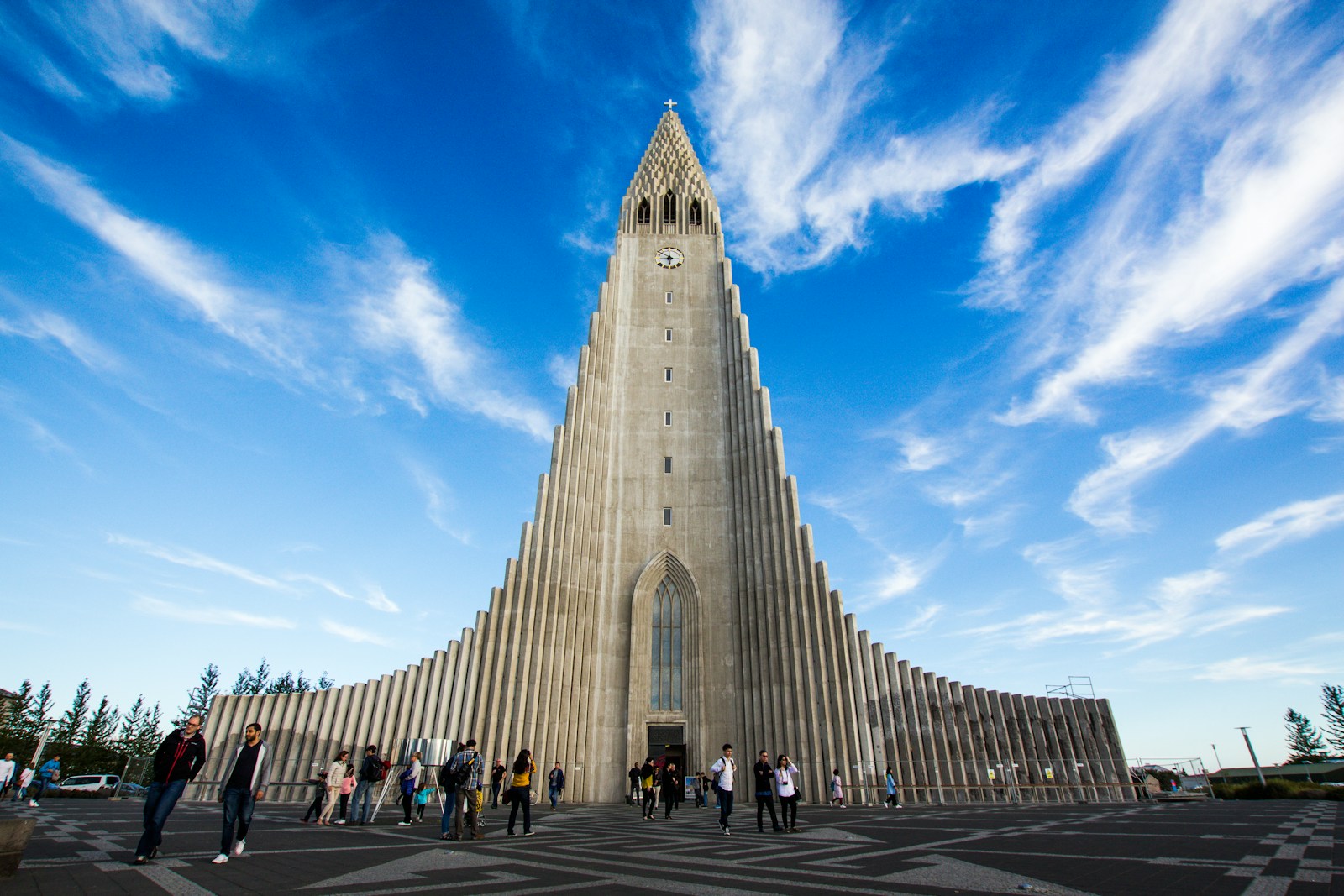Iceland, the Nordic island nation in the North Atlantic Ocean, is one of the world’s most prosperous countries. Despite its small population of just over 370,000 people, Iceland enjoys a high standard of living, strong economic growth, and a robust welfare system. The country consistently ranks highly in terms of GDP per capita, human development, and quality of life. Iceland’s economic success might seem surprising, given its small size, geographical isolation, and limited natural resources. So, what makes Iceland so rich?
In this article, we will explore the key factors that have contributed to Iceland’s wealth, including its unique natural resources, strategic economic policies, renewable energy dominance, diversified economy, and resilience in the face of challenges. Iceland’s economic model combines innovation, environmental sustainability, and social welfare, which has allowed the country to prosper despite its geographic and demographic limitations.
1. Natural Resources and Renewable Energy
One of the primary reasons for Iceland’s wealth is its rich endowment of natural resources, particularly renewable energy sources. Unlike many other wealthy nations that depend on fossil fuels, Iceland has harnessed its unique geography to become a global leader in clean energy production. This has allowed Iceland to power its industries, homes, and businesses with abundant, low-cost energy, contributing significantly to the country’s prosperity.
Geothermal Energy
Iceland is located on top of a volcanic hotspot, which provides an almost unlimited supply of geothermal energy. Geothermal energy is harnessed by tapping into the heat generated beneath the Earth’s surface, which is then converted into electricity and used for heating. Iceland has been a pioneer in the development and use of geothermal energy, which today powers nearly 90% of the country’s homes and provides around 25% of its electricity. The low cost of geothermal energy has made Iceland one of the most energy-independent countries in the world, reducing the need for imported fossil fuels and cutting energy costs for both households and businesses.
Hydropower
In addition to geothermal energy, Iceland is blessed with abundant water resources, which have allowed it to develop a strong hydropower industry. Iceland’s numerous rivers and waterfalls, fed by glaciers and abundant rainfall, generate around 70% of the country’s electricity. Hydropower is a clean, renewable, and reliable source of energy that has been instrumental in powering Iceland’s industries and supporting its economic growth.
Energy-Intensive Industries
Thanks to its abundant supply of cheap and sustainable energy, Iceland has developed several energy-intensive industries that have become key drivers of its economy. The most notable of these industries is aluminum production. Aluminum smelting is an extremely energy-intensive process, and Iceland’s low-cost electricity has attracted major multinational companies like Alcoa and Rio Tinto to establish smelting plants in the country. Iceland is now one of the world’s largest producers of aluminum per capita, and aluminum exports account for a significant portion of Iceland’s GDP.
The combination of geothermal and hydropower resources has not only provided Iceland with a low-cost energy supply but has also made it a global leader in environmental sustainability and renewable energy innovation.
2. A Diversified and Resilient Economy
While Iceland’s economy has historically relied on its natural resources, it has diversified significantly in recent decades. A key reason for Iceland’s wealth is its ability to adapt and innovate, moving beyond traditional industries like fishing to become a hub for tourism, renewable energy, and technology.
Fishing Industry
For much of its history, Iceland’s economy was largely based on fishing, which remains an important sector today. Iceland has some of the richest fishing grounds in the world, thanks to its location in the North Atlantic. The country’s sustainable fisheries management practices have helped maintain healthy fish stocks, allowing it to remain one of the world’s leading exporters of fish and seafood products. The fishing industry accounts for around 11% of Iceland’s GDP and a significant share of its exports.
Iceland’s success in the fishing industry is largely due to its commitment to sustainable practices, including strict fishing quotas and monitoring programs. These practices ensure that fish stocks remain healthy and productive, allowing Iceland to continue benefiting from its marine resources for generations to come.
Tourism Boom
In recent years, tourism has become one of Iceland’s most important industries, driving economic growth and creating jobs. Iceland’s breathtaking landscapes, including glaciers, volcanoes, geysers, and waterfalls, have made it a top destination for travelers seeking adventure and natural beauty. The country’s tourism industry has grown rapidly, particularly after the 2010 eruption of the Eyjafjallajökull volcano, which brought international attention to Iceland’s unique geography.
Before the COVID-19 pandemic, tourism accounted for about 10% of Iceland’s GDP, and the sector employed a significant portion of the workforce. Although the pandemic temporarily disrupted the tourism industry, Iceland’s strong reputation as a sustainable travel destination is expected to fuel continued growth in the sector as global travel resumes.
Tech and Innovation
Iceland has also developed a growing technology and innovation sector. The country’s highly educated population, combined with its strong investment in digital infrastructure and research and development, has made it an attractive destination for tech start-ups and digital services. Iceland’s focus on innovation has led to advancements in areas such as software development, gaming, and green technology.
One notable example is CCP Games, the Icelandic company behind EVE Online, one of the world’s most popular online multiplayer games. Iceland’s tech sector continues to expand, attracting both foreign investment and local talent, contributing to the country’s growing economic diversity.
3. A Strong Welfare State and Social Cohesion
Another reason Iceland is so rich is its strong welfare state and high levels of social cohesion. Like other Nordic countries, Iceland has a comprehensive welfare system that provides its citizens with access to essential services such as healthcare, education, and social security. These services are largely funded by progressive taxation, ensuring that wealth is distributed equitably across society.
Universal Healthcare and Education
Iceland’s universal healthcare system provides all citizens with access to high-quality medical care, regardless of income. This system is funded primarily through taxes, ensuring that healthcare is affordable and accessible to everyone. A healthy population is essential for maintaining a productive workforce, contributing to Iceland’s overall economic prosperity.
In addition to healthcare, education in Iceland is free from primary school through university. This ensures that all Icelandic citizens have the opportunity to pursue higher education and develop the skills needed for success in the modern economy. Iceland’s education system emphasizes creativity, innovation, and critical thinking, which are essential for fostering a dynamic economy.
Social Security and Income Equality
Iceland’s welfare system also includes a wide range of social security benefits, including unemployment benefits, disability support, and pensions. These programs help protect individuals and families during times of financial hardship, ensuring that no one is left behind. Iceland’s strong welfare system contributes to its low levels of poverty and high levels of income equality, creating a stable and prosperous society.
Iceland consistently ranks as one of the countries with the highest levels of social trust and happiness. This sense of social cohesion and trust in government institutions fosters a harmonious society where citizens feel secure and are more likely to invest in their education, health, and businesses. Iceland’s strong sense of community and solidarity has played a key role in its economic success.
4. Political Stability and Good Governance
Iceland’s wealth is also closely tied to its high level of political stability and good governance. The country consistently ranks among the least corrupt nations in the world, according to Transparency International. Iceland’s political system is characterized by transparency, accountability, and respect for the rule of law, all of which create a stable environment for businesses and individuals to thrive.
Low Corruption and Trust in Government
One of the reasons for Iceland’s economic success is its low levels of corruption. The country’s strong institutions and transparent government practices ensure that public resources are used efficiently and that citizens trust their political leaders. This high level of trust fosters social cohesion and creates a positive environment for investment and economic growth.
Sound Economic Policies
Iceland’s government has consistently implemented prudent economic policies that promote growth while ensuring social equality. These policies include progressive taxation, which funds the welfare state, and fiscal responsibility, which ensures that public debt remains manageable. Iceland’s commitment to long-term financial planning has allowed it to avoid many of the financial crises that have affected other countries.
5. Resilience and Recovery from Economic Crises
Despite its current wealth, Iceland has faced significant economic challenges in the past. The country’s ability to bounce back from these crises has been crucial to its long-term prosperity.
The 2008 Financial Crisis and Recovery
One of the most significant economic challenges Iceland faced was the 2008 global financial crisis. Iceland’s banking sector collapsed, leading to a deep recession and widespread unemployment. However, Iceland’s recovery from the crisis was remarkably swift, thanks to a combination of government intervention, international assistance, and economic reforms.
Iceland’s government took decisive action by allowing its failing banks to go bankrupt, restructuring the banking sector, and implementing measures to protect the welfare state. The country also benefited from an IMF-led bailout, which helped stabilize the economy and restore investor confidence.
Iceland’s strong welfare system helped cushion the social impact of the crisis, ensuring that vulnerable citizens received support during the recovery. By 2011, Iceland’s economy had returned to growth, and the country’s GDP per capita has continued to rise ever since.
Conclusion
Iceland’s wealth and prosperity can be attributed to a combination of factors, including its rich natural resources, renewable energy leadership, diversified economy, and strong welfare state. The country’s ability to harness its geothermal and hydropower resources, invest in sustainable industries, and promote innovation has allowed Iceland to maintain a high standard of living for its citizens.
Iceland’s political stability, good governance, and social cohesion have also played a crucial role in its economic success, ensuring that wealth is distributed fairly and that the benefits of prosperity are shared across society. Despite facing economic challenges in the past, Iceland’s resilience and adaptability have allowed it to recover and continue to thrive.
In short, Iceland’s wealth is the result of a well-managed economy, a commitment to sustainability, and a strong social welfare system, all of which contribute to its long-term prosperity and success.




